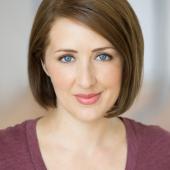The impact of one
During Fringe, you don’t always know what you’re getting yourself into. You assume that the shows will be scrappy, thrown-together affairs, even if well-done thrown together affairs. You are surprised when a show seems polished. You’re even more surprised when a show not only seems polished in the performative sense, but also has decent production values.
That is not to say that the Fringe is not quality theater. It’s just that it’s…a grab bag. Some of the best, most raw and interesting shows I’ve ever seen have been at Fringe, just as some of the worst have also grown in the fertile soil on the edges of “legit” theater.
The Fringe offers a home for the experimental, for the upstart, for the “we’re just trying this out,” for the “Can I get away with this?” Fringe is a place where anything goes as long as you follow the giant book of guidelines.
Thinking back on the shows I’ve seen this year, I realized that the theater I found the most compelling over the past twelve months had these things in common: They were all Fringe shows with a main cast of one. Very little set and few props, if any. And the courageous sharing of personal stories that were enormously compelling, if not always flattering.
In “First Year Queer,” Lyssa Sparrow shared her experiences coming out as bisexual and polyamorous, and a few guests talked about their experiences with lifestyles that aren’t often publicly discussed. Eye-opening and surprising, it made inroads to normalize subcultures that are often fetishized by the mainstream, and brought both humor and sensitivity to these discussions, even offering a safe place for survivors of sexual abuse during segments of the show that might have been hard for some to watch.
“Fuck the 90s” related Mame Pelletier’s stories of losing three very close family members during her tumultuous post-high school years in the aforementioned decade. While telling her story, Mame created a safe environment for others to grieve as well, and incorporated 90s song breaks by a live trio, that gave the audience just a little bit of breathing room. In one of my favorite parts of the show, Mame brought up an audience member to interview, and drew out the woman’s own story of loss in the most gentle manner possible. It could have been any of us up there surprised to be sharing our story with a room full of strangers, and the whole audience breathed carefully together as one fragile being.
Masterful presenter David Mann created a funny, yet soul-bearing show about his quest to find the “Best of All Possible Worlds” through juggling family life and work and acting, starting with the early years of his marriage through the beginning of his divorce. A well-crafted work with heart, his production contained equal appeal for those trying to make ends meet as an artist, as well as anyone who has slaved away their life in corporate America. At the end, when David talked about sleeping on the floor of his bathroom, and curled up on the imaginary set to rest, I sighed for the almost impossible task we have as artists to balance our art with our lives and our need to make a living.
While Jen Maren’s experience of being humiliated when her mother took her on the Sally Jesse Raphael Show to find her a date to the prom may have been fairly unique, the universality of having a difficult relationship with one’s parents was not. “Live From New York: He’s a Prom Date!” took a stroll down memory lane to that time in our lives when everyone is trying to figure out who we are and how we fit into the world, while our parents thwart our every step forward. While the show never directly discussed Jen’s mother’s illness, only touching on it subtly, the production became all the more poignant because of it.
And out-of-towner Penny Sterling (“A Spy in the House of Men: A One Woman Show With Balls”) shared both humorous and more serious anecdotes about transitioning from man to woman later in life. One story in particular, about an encounter with a man who assaulted and berated her in a gas station while she drove her daughter to college, stuck with me. That it took this incident, where Penny was objectified, and treated with the same misogyny that almost all women have experienced in life, for her daughter to begin to accept her as a woman. I find it even more beautiful that Penny came through it with the belief that there is a gift in everything that happens to us, good or bad.
Though I am not queer or trans, have not experienced the same depth of losing so many close family members in a short period of time, have not had kids, nor have I been married nor divorced, nor has my mother humiliated me on national television, these stories all resonated with me in a much deeper way than the usual scripted fourth-wall productions I saw. Maybe because they felt less like performances, and more like intimate conversations, where someone was entrusting me with their deepest secrets. While it is always brave to share one’s story, putting yourself and that story on stage, in front of others, takes real courage. But those who do choose to share their own stories in this way know that the reward of real human connection, being seen in our truth, outweighs the risk of direct judgement every time.
I empathized with all of these people whose lives have been vastly different than my own and found myself fully immersed in their unique life experiences and identifying with the emotional core of each story. Not only that, but some of these stories made me feel safe enough to broach conversations I otherwise might not have been brave enough to initiate. I wanted to hug each one of these performers and say “Thank you for sharing your story with us. Your courage has inspired and will inspire others to do the same.”




